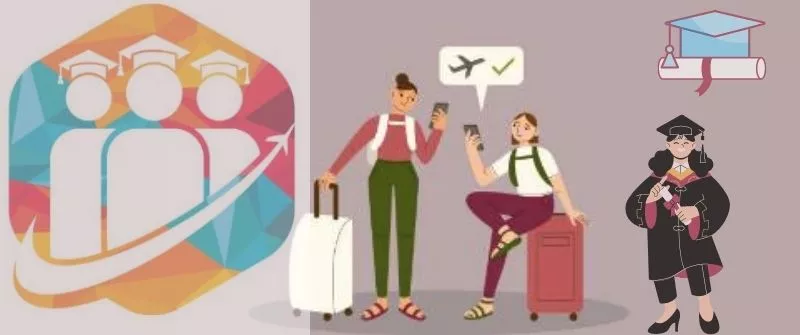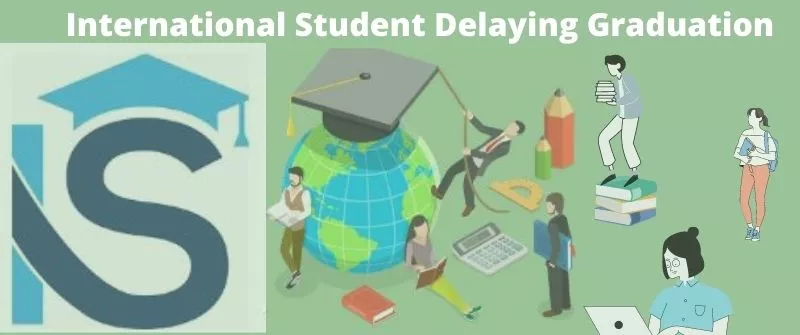If you are an international student and have been delaying your graduation from the U.S., then you should have a valid reason for doing so. It is important to come up with a valid reason because of failing to do so.
Delaying graduation is when a student does not complete the degree requirement by the expected deadline. We also refer to it as ‘leave of absence’ or ‘readmission’.
Notably, delaying graduation may prompt creditors to believe you are having financial difficulties, resulting in your inability to pay back any debts. This article carries more insight. Read on.
Why Can International Students Delay Graduation?
1. Lack of Academic Preparation

The most common reason for international students delaying graduation is inadequate preparation to take the coursework.
Many international students come from countries where the educational system is different than in the U.S. This is a major reason for students dropping out of class in colleges.
International students often have a difficult time adjusting to the American educational system.
In the process, they find themselves having to take extra courses or even repeat courses. In some cases, this can cause international students to delay graduation.
2. Difficulty Adjusting to Life in the United States
International students often find it difficult to adjust to living in the U.S. They find it hard to make friends. They may not speak English well and are often overwhelmed by their new surroundings.
Due to such experience, it can cause international students to feel like they do not fit in and can lead them to become depressed and anxious, which can interfere with their ability to do well in school.
3. Multi-tasking
International students often work while they are in school. This can cause them to get behind on their studies because they lack have enough time to study, or because they do not feel like studying when they get home from work. This disruption contributes to the increasing number of students who fail.

This can cause international students to delay graduation because they need more time for the courses that will help them graduate on time.
4. Financial Difficulties
Some parents or family members of international students expect them to send money back home. This aspect puts a lot of pressure on them to try something new alongside the study line and raise some funds to meet such expectations.
Some of these students go ahead to defer some studies and tilt in other money generation activities. In the process, they will delay in graduating by a year or more.
5. Language Barriers
International students often find it hard to speak English properly. This can be a limiting factor especially when they want to interact with their peers.
Some may require some classes to learn the new language to assist them in the communication. The process of study could be time consuming hence causing the delay.
6. Cultural Differences
Many international students experience a culture shock when they enroll in US universities. This is because they have to adjust to the new way of life and manage the cultural conflict that they are liked to encounter.
Based on your orientation, it will take some time before you accept tolerating a strange or new culture as a lifestyle. For that reason, you need to read a lot about the new culture before landing there.
7. Course Availability and Scheduling Conflicts
A course requires a quorum for the lectures to resume well. If it lacks a quorum, then the resumption may delay. Also, if there is a conflict in scheduling, it will reflect in the entire course which is an automatic delay.
How to Delay Graduation
There are several ways to delay graduation beyond switching your status to part-time.
1. Request an Extension

If you need more time to finish your degree and are still enrolled full-time, you can request an extension.
Your school will automatically recommend the minimum amount of time necessary for you to complete the degree and all required coursework.
You can request a shorter extension if you wish.
If you want more time than the recommended minimum, however, you will need to provide a compelling academic or medical reason for the extension.
When writing an email, follow the recommended etiquette.
2. Request a Leave of Absence
A leave of absence is a temporary withdrawal from the university that allows students to take time off while maintaining their student status and eligibility for financial aid.
You can request a leave of absence from your school if you are unable to continue studying while maintaining your status. A leave of absence may be granted for any legitimate educational purpose (e.g., research or internship), medical reasons, or personal reasons that would prevent you from continuing enrollment (e.g., family emergency).
Can You Delay Graduation to Study Abroad?
Yes, you can.
Do Schools Accept this?
It depends on the school and its policies.
Our advice is for you to make sure that you will be graduating at the end of your senior year and stay the extra semester. It would look bad to the admissions committee if you decide to take a gap year after they accepted you for a graduate program. It would show that you are not committed to your studies and are interested in other things.
You should also check with the financial aid department regarding scholarships and grants as well as what happens with loans when you are not operating full-time.

Joseph is a freelance journalist and a part-time writer with a particular interest in the gig economy. He writes about schooling, college life, and changing trends in education. When not writing, Joseph is hiking or playing chess.
